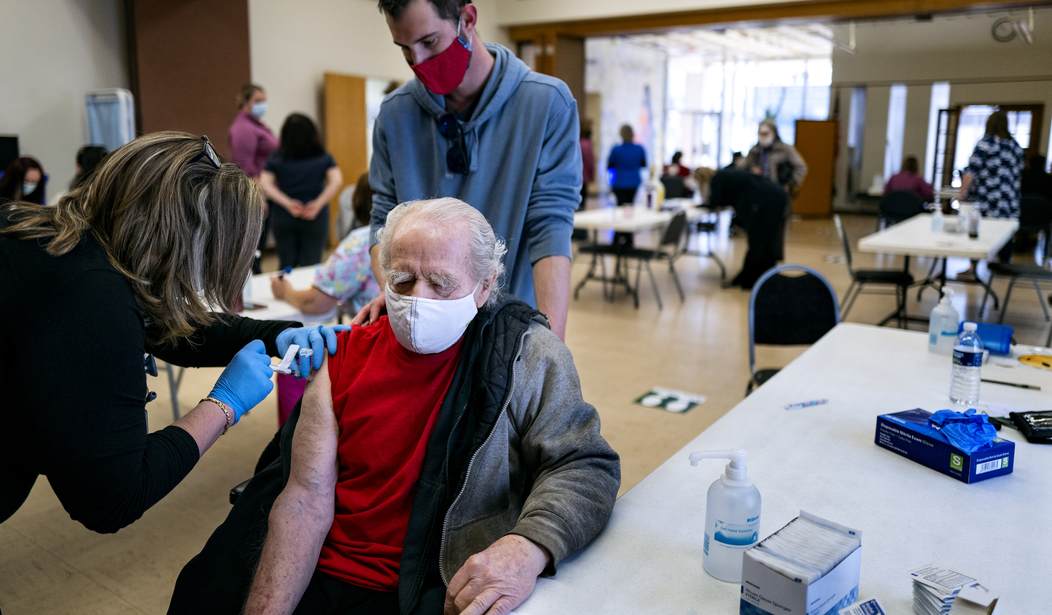When President Joe Biden received his daily briefing on Tuesday morning, he was likely informed that his administration did not meet its Independence Day vaccination initiative.
On May 4, the Biden White House first announced its goal — to administer at least one dose of the Wuhan coronavirus vaccine to 70 percent of all American adults by July 4. According to CDC data updated Sunday morning, only 67.1 percent of those aged 18 and older had received at least one dose of the vaccine.
The CDC data also showed that 58.2 percent of adults have been fully vaccinated, meaning that two weeks have passed since the administration of a person’s final dose.
As it became clear that Biden would fall short of the 70 percent threshold last month, White House Press Secretary Jen Psaki tried to downplay the lackluster statistics by asserting that people aged 30 and older had already met the administration’s goal.
“We don't see it exactly like something went wrong, how we see it is we set a bold, ambitious goal — something the president has done from the very beginning — and we are expected to meet that goal,” Psaki said at a press briefing on June 22. “Just a couple of weeks after July 4, and in fact, at this point, as of today, we’re going to be already at that (70 percent) point for people who are 30 years of age and older.”
In its quest to boost vaccination rates, Biden and other top Democrats have consistently targeted groups reluctant to be inoculated. Particularly, it has placed immense emphasis on rural White communities — evident through its NASCAR marketing campaign back in April.
Recommended
However, White evangelicals are not the only hesitant demographic. Minority groups, especially African Americans, have long distrusted the country’s medical establishment. The Tuskegee Experiment — in which researchers observed the 40-year progression of untreated syphilis in Black men from rural Alabama — is the most notorious example of the historic abuse driving many communities of color away from coronavirus vaccines.
On June 28, the CDC reported that just 9 percent of people who chose to report their race upon receiving a coronavirus vaccine identified as Black. Considering that Black people make up roughly 13% of the United States’ population, this disparity does not seem significant. However, it comes in spite of the fact that vaccination rates are higher in urban areas — where Black people are more likely to reside.
Narrowly missing the 70% vaccination goal is unlikely to hurt Biden’s standing with Democrats and Independents. After all, 18 states and the District of Columbia had already vaccinated 70 percent of their adult citizens last week.

























Join the conversation as a VIP Member